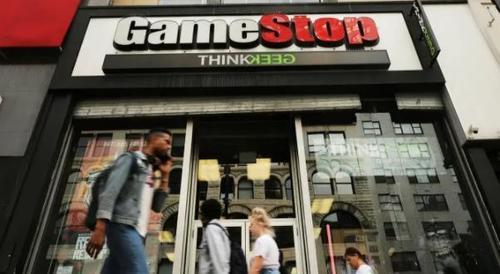Fidelity Veteran Wins 'Outstanding Portfolio Manager' Award Despite Dumping GameStop Stake
As it turns out, Michael Burry isn't the only institutional portfolio manager who believed GameStop was undervalued when its shares were still languishing in single-digit territory. In a story published this week, Bloomberg revealed that Joel Tillinghast, the longtime manager of Fidelity's Low-Priced Stock Fund, bought GME last year. But, like Burry, Tillinghast and Fidelity dumped their GameStop shares long before they topped $100/share.
Despite missing out on what would have been a career-defining slam dunk, Fidelity still awarded Tillinghast with its outstanding portfolio manager award this week. A Morningstar analyst defended Tillinghast by saying he "doesn't chase fads". Still, considering that the stock peaked at just shy of $500 a share, we wouldn't be surprised to learn that Tillinghast has some regrets about dumping his entire stake.
The $33.5 billion Fidelity fund had about 2 million shares of GameStop at the end of October, regulatory filings show. That’s when the Grapevine, Texas-based company’s stock traded at just above $10. By the end of January, at which point the fund had exited its position, GameStop had reached as high as $483. It hasn’t climbed back to that level since then, closing at $220.40 on Tuesday.
Tillinghast didn’t say at what price he sold. However, another fund that he manages, the $14 billion Fidelity Series Intrinsic Opportunities Fund, held 6.8 million GameStop shares as of Oct. 30 that were valued at $71.2 million, filings show. It sold the entire stake by the end of January for a total of $333.8 million, or about $49.08 a share.
But more than anything, Tillinghast's decision to sell underscores how the principles like those outlined in the "Intelligent Investor" no longer hold in contemporary markets where trillions in federal stimulus money and no-commission trading have changed market dynamics. Old notions of "fair value" simply no longer apply.
"It felt like when the stock was in the single-digits, there was no question that the stock was undervalued, even though it was fundamentally challenged and they were lagging in their efforts to market digitally," Tillinghast said of GameStop. "But when the stock rallied above my estimate of fair value, I sold it."
When his mind starts to wander, sometimes he calculates the difference in the current market price of GME and the price that he sold at. But mostly, he tries not to think about it.
"Sometimes I multiply the difference between the sale price and the current market price by the number of shares that I had, and of course I kick myself," Tillinghast said in an interview on Bloomberg Radio’s Baystate Business. "But the comforting thing of being a value investor is I also feel like, well, I sold it for somewhat more than my estimate of fair value and that’s what I meant to do."
At any rate, Fidelity's low-priced fund is still having a pretty good year. It's up about 19%, beating 84% of its peers. Over a five-year period it ranks in the 27th percentile, according to Bloomberg's data.
In summary: selling too early is still preferable to shorting GME.
https://ift.tt/3qu5WD8
from ZeroHedge News https://ift.tt/3qu5WD8
via IFTTT


0 comments
Post a Comment